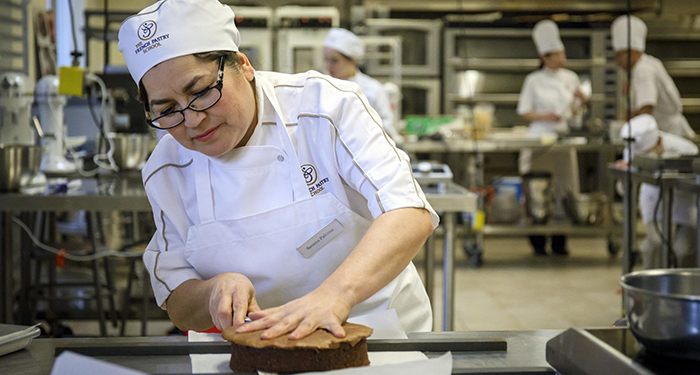
Susana Palomo works during class Thursday, Feb. 2, 2017 at the French Pastry School. (Brian Cassella / Chicago Tribune)
Matt Wilson, economic development planner for the Great Cities Institute is quoted in an article on the impacts of the Nabisco plant closing.
But it’s hard to envision a meaningful reversal of the manufacturing decline in Chicago, where $25-an-hour factory jobs with benefits have become increasingly rare. In the late 1940s, Chicago boasted almost 670,000 manufacturing jobs, according to city data. Recent estimates by university researchers put the current number at closer to 70,000.
Jobs at the Nabisco bakery, which employed more than 4,000 workers in its heyday, generally paid more than most of the other jobs in the surrounding area, and the plant employed more black and Latino workers than other facilities in the area, according to a recent analysis by the Great Cities Institute at University of Illinois Chicago.
“These are important, good-paying jobs, and not necessarily for people with high levels of educational attainment, in a part of the city that’s been losing manufacturing jobs for decades,” said Matt Wilson, economic development planner for the Great Cities Institute.


